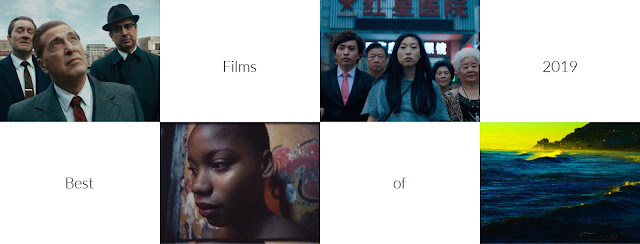Review | The Zone of Interest | 2023
The phrase "the banality of evil" has been thrown around a lot this year in reference to films like Martin Scorsese's Killers of the Flower Moon, and now Jonathan Glazer's The Zone of Interest, but it's a phrase that potently describes the absolute normalcy under which humans are capable of carrying out the most ghastly of atrocities.
Set in Auschwitz during the Holocaust, The Zone of Interest follows the family of the concentration camp's commandant, Rudolf Höss (Christian Friedel), as they go about their seemingly normal lives in their beautiful home and edenic gardens just outside the camp's gates. His wife, Hedwig (Sandra Hüller) busies herself preparing for the arrival of houseguests, while tending to the garden and giving tours to family and friends. The only indication that anything is amiss is the screams and gunshots emanating from the camp just over the wall, the black smoke pouring from the smokestacks a stark reminders of the extreme inhumanity happening mere feet away from this floral paradise.Within the home, Höss holds meetings with SS bigwigs, discussing the latest crematorium designs and the most efficient ways to cremate bodies en masse, as if it's just another meeting at any nondescript business office. Women strolling through the gardens muse about whether their former neighbor, a Jewish woman, is now in the camp, lamenting that they got outbid on her curtains after she was shipped away. SS members are reprimanded for picking lilacs the wrong way but not for the murders happening just a few feet away on the other side of the wall. The clash between the idyllic surroundings and the nonchalant discussion of human evil is jarring - and rightfully so. But the way in which Glazer displays just how normal this all was is an unnerving reminder of human capacity for both committing atrocities, and ignoring them.
Nazis were not mustache twirling cartoon villains - they were people living regular lives while perpetrating monstrous evil. The banality of their evil makes their crimes all the more disturbing. It also makes them feel more immediate - it's easy for people to dismiss the evil of fascism if it doesn't look like a Hollywood bad guy, to rationalize it away. The Zone of Interest shows evil as terrifyingly commonplace, where gas chambers and mass burnings are treated as just routine day to day business, the stuff of pencil pushers, middle managers, and dull workplace chatter rather than monumental acts of human cruelty.
How can you just go about your daily business in the shadow of such atrocity? It's a question that reverberates through the ages - long after the fires of the camps had burnt out. Near the end of the film, Glazer flashes forward in time, as going about daily business continues at Auschwitz with a decidedly different tone as janitors prepare it for visitors in modern day. It's a shocking, unnerving juxtaposition of humanity carrying on in the shadow of evil, desensitized and seemingly unfazed. This is what monsters look like - neighbors turning the other way in the face of injustice, using the misfortunes of others for personal gain, ensuring their own comfort at the expense of others, and it continues to this day just on the other side of our metaphorical walls, whether its the walls surrounding Auschwitz or the walls surrounding occupied Gaza. Glazer's film illustrates this with steely austerity, presenting an unrelentingly bleak view of human nature and our capacity for heinous barbarism, treating the darkest aspects of humanity as just another mundane 9-5. The results are almost impossible to watch, but it is perhaps even more impossible to turn away.





Comments